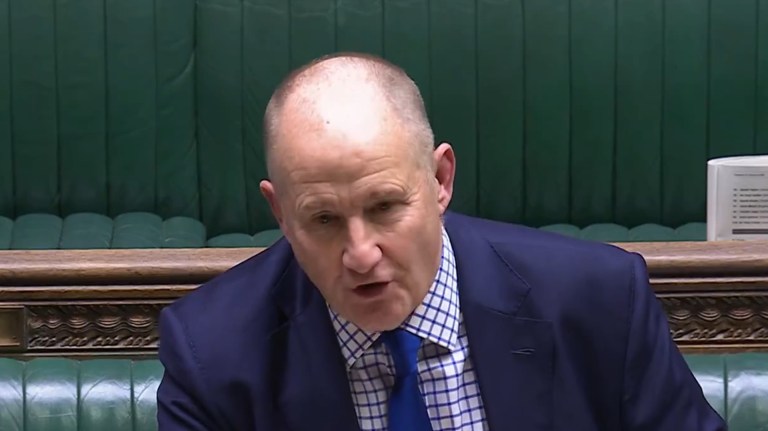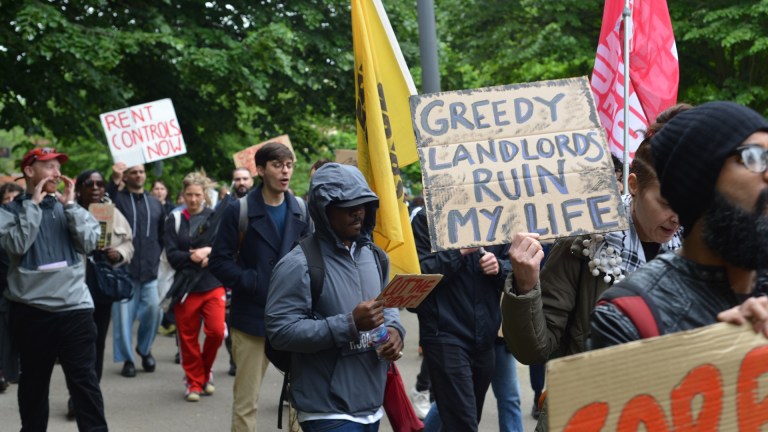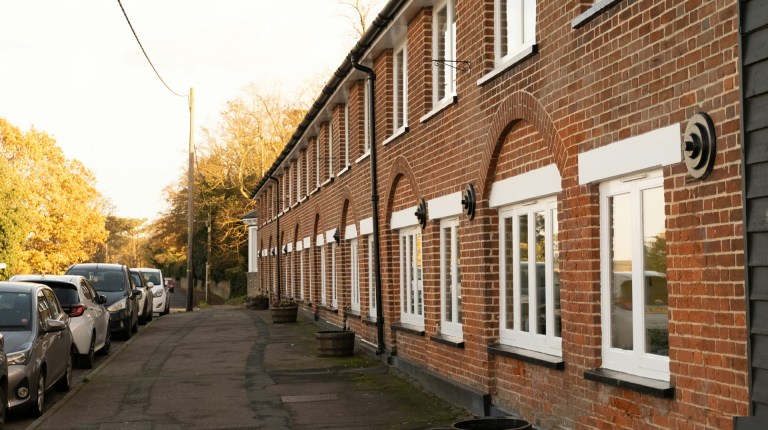How much should you be spending on rent?
Affordability is key when renting, though the average monthly rent for the UK is around £1,200 – no small sum.
A general rule of thumb is to spend no more than roughly 30% of your income on rent. You might be able to secure rent which costs less than that, or you may have to pay more if your income is lower. Ideally, the amount you pay for rent will leave you with enough to cover all other household bills, necessities such as groceries and transport, some money for non-essentials, and some which can be saved if your budget allows.
To calculate your budget, take your total monthly income (after tax) and multiply this by 0.3 to find your ideal rent budget. For example, if your monthly income is £2,000, you should aim for a rent of no more than £600.
What costs to expect
When planning your budget, it’s crucial to understand all the costs associated with renting. As well as rent, you’ll likely need to pay a deposit to secure a home. This is typically equivalent to five weeks’ rent and is held as security against damage or unpaid rent. Remember your landlord or letting agent must place it into a deposit protection scheme, otherwise they could owe you compensation.
You’ll also need to factor in utilities, which generally means gas, electricity and water. You’ll need to set up accounts with providers when you move in.
Don’t forget council tax, the cost of which will vary depending on your area and the property.
Finding a property to rent
Once you know your budget and criteria, you can start the search for your new home.
Most people primarily use websites such as Rightmove, Zoopla and SpareRoom to see what’s available. You can also visit local letting agents for information, or you might hear about a property coming available via word of mouth particularly if you’re looking to sublet.
What to look for
Tenancy types: Get familiar with the different types of tenancies. Most common are assured shorthold tenancies (sometimes referred to as occupation contracts in Wales), but other options exist. Your tenancy type will be different if your landlord lives in the property. For detailed information, check the Shelter website for your area.
Pets: If you’re looking to rent with pets, make sure the landlord or letting agent allows them.
Condition and amenities: Make sure the property is in good shape and check for amenities like washing machines, dishwashers, and parking if you need it.
Location: Consider the property’s proximity to work, public transport, local amenities and your community.
What checks will a landlord make?
Before handing over the keys, landlords will perform several checks to ensure you’re a reliable tenant. That includes checking you can afford the rent, which could mean they ask for three months’ of payslips, bank statements and references from your employer. They might also ask for a landlord reference letter from your previous tenancy, if you had one.
Can landlords do credit checks?
Landlords also use credit checks to get assurances about your financial reliability. They can only do what’s known as a soft check, which means they can only access public information about your finances.
This will take into account any bankruptcies or legal action taken against you for owed money, such as county court judgments (CCJs). There’s no rule that says you need a certain credit score to rent a home, but landlords might decide they won’t accept prospective tenants who fall below a particular threshold.
How to check your credit score
Before applying for a rented home, you might decide to check your credit score to avoid surprises. You’re entitled to get this information for free – be wary of anything that asks for a fee, unless you want to buy a more comprehensive credit report.
You can use free services from credit reference agencies such as Experian, Equifax or TransUnion.
You could also be asked to provide a guarantor for rent– this is a person who agrees to be responsible for your rent in the future if you don’t pay it.
What will a landlord provide?
Once you’re ready to move in, your landlord has a duty to provide you with essential paperwork and information.
That will include your tenancy agreement – the legally binding document outlining the terms of your tenancy, including rent and when your landlord could consider a rent increase, when it ends, and your responsibilities.
You should also get an inventory. Check this detailed list of the property’s contents and their condition when you move in and flag any discrepancies to avoid problems later.
Deposit protection
Your landlord must protect your deposit in a government-backed scheme – the relevant schemes will vary depending on where in Britain you are. This means your money is safeguarded for the duration of your tenancy and you’ll have access to free dispute resolution services if your landlord tries to only return part of the deposit later.
You should receive confirmation and details of the scheme within 30 days of paying your deposit.
If you get housing benefit or universal credit
A landlord shouldn’t refuse you as a tenant simply because you receive benefits, and doing so amounts to discrimination. But in reality, it sometimes still happens. You can challenge it if it does – you’re more likely to have success challenging a letting agent, because they are regulated more strictly than landlords are.
Make sure you have records of all communications with the person or organisation you want to challenge. You can then write a complaint to the landlord or agent. If the issue isn’t resolved at that point and you’re dealing with a letting agent, you can complain to the Property Ombudsman or Property Redress scheme, depending which they are a member of.
Judges have previously ruled that so-called ‘no DSS’ practices are unlawful and discriminate against disabled people and women in particular.
“We take a dim view of discrimination of any kind at [the Property Redress Scheme],” said Sean Hooker, head of redress for the organisation. The Property Redress Scheme is an example of a general consumer redress scheme, and can help resolve disputes between landlords, tenants and letting agents.
“It is already law under the Equalities Act 2010 that discrimination is illegal, both directly and indirectly.
“Agents whose landlords instruct them not to let to certain types of people should robustly point out their legal obligations,” he added, “and have the courage not to act for them if they refuse to back down. If not, they are colluding with the prejudice.”
Remember to check your local housing allowance rate so both you and the landlord are clear on how much money will be paid towards your rent through benefits.
Your housing benefit or universal credit can be paid directly to your landlord, ensuring they receive rent on time. Alternatively, you can manage payments yourself as long as you can budget carefully to avoid rent arrears.
It’s worth researching what help with rent might be available from your local council or charities for benefit recipients looking to rent. Some services can support you in finding a suitable home as well as understanding your rights.
Do you have a story to tell or opinions to share about this? Get in touch and tell us more. Big Issue exists to give homeless and marginalised people the opportunity to earn an income. To support our work buy a copy of the magazine or get the app from the App Store or Google Play.









